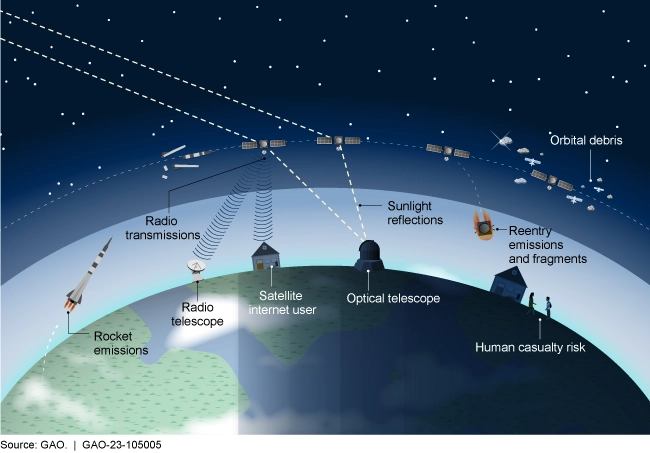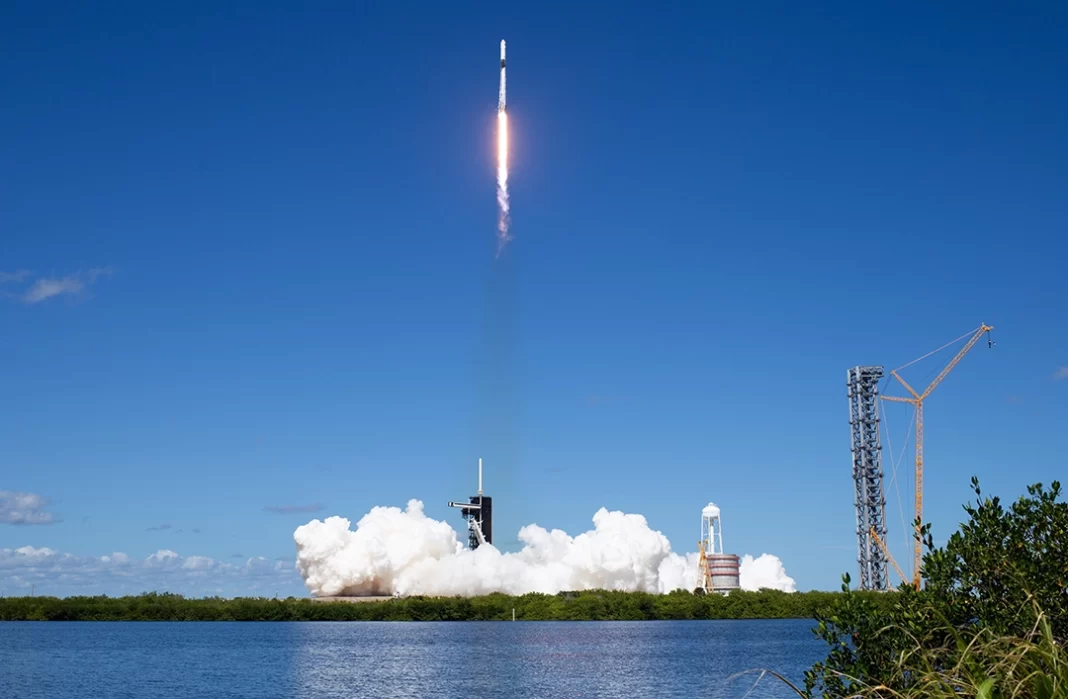A group of 100 researchers is calling on the Federal Communications Commission (FCC) to halt new Starlink satellite launches, citing environmental risks linked to the rapid increase in low-Earth orbit (LEO) satellites. The call for action focuses on the long-term atmospheric and orbital impacts of Starlink and similar mega-constellations.
Since 2019, SpaceX’s Starlink project has launched over 6,000 satellites into LEO with plans to nearly double this number by the end of the decade. Intended to provide internet access globally, particularly in underserved regions, the satellite constellation faces criticism for its potential environmental impact. According to the researchers’ letter submitted on 24 October, the large volume of satellites re-entering Earth’s atmosphere deposits amounts of metal particulates, especially aluminum, that remain suspended in the upper atmosphere.
Concerns Over Atmospheric Pollution and Magnetosphere Disruption
Research by physicist Sierra Solter-Hunt indicates that particulate matter from satellite reentries may lead to atmospheric pollution, increasing aluminum oxide levels. Solter-Hunt’s study shows that this increase in metal oxides could contribute to ozone layer depletion. These particulates may also create a conductive layer in the magnetosphere, potentially disrupting Earth’s magnetic field and affecting satellite communications.
Data from the Geophysical Research Letters highlights that aluminum levels in the upper atmosphere rose by 29.5% in 2022 due to satellite reentry. Solter-Hunt’s findings suggest that continued launches of large satellite constellations could amplify these effects, leading to long-term atmospheric changes and heightened collision risks as space becomes more crowded.
Orbital Congestion and Space Debris Risks
In addition to atmospheric pollution, researchers highlight concerns over increased collision risks in LEO. According to Public Interest Research Group (PIRG), the FCC’s licensing approach lacks adequate environmental oversight, as satellite applications are often approved on a first-come, first-served basis. This regulatory gap has enabled the exponential increase of satellites in LEO, which now houses more than 60% of all active satellites due to Starlink’s presence. With projections of up to 500,000 satellites from various companies in the coming decades, researchers warn of an “orbital congestion” scenario where the risk of collisions could result in long-lasting space debris, further jeopardising satellite operations.

Calls for Regulatory Reform
The researchers’ letter to FCC Space Bureau Chief Julie Kearney urges the agency to reconsider its categorical exclusion of satellites from environmental review, arguing that the current pace of satellite deployment demands oversight. They suggest that the FCC collaborate with agencies such as the Environmental Protection Agency (EPA) and NASA to conduct comprehensive environmental reviews on the impacts of mega-constellations. Recommendations also include the formation of an international regulatory framework with agencies like the International Telecommunication Union (ITU) to manage orbital space and protect atmospheric resources.
Summary of Researchers’ Position
The researchers argue that without regulatory intervention, the unchecked growth of satellite mega-constellations could result in harmful environmental consequences both in space and on Earth. The letter emphasizes that an international, coordinated approach to satellite management is essential to prevent long-term impacts on Earth’s atmosphere and to ensure sustainable satellite deployment practices.
The FCC has not yet responded to the researchers’ request for a moratorium on new launches. Starlink has also not issued a comment on the environmental concerns raised.





